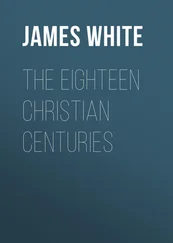James Walsh - The Thirteenth, Greatest of Centuries
Здесь есть возможность читать онлайн «James Walsh - The Thirteenth, Greatest of Centuries» — ознакомительный отрывок электронной книги совершенно бесплатно, а после прочтения отрывка купить полную версию. В некоторых случаях можно слушать аудио, скачать через торрент в формате fb2 и присутствует краткое содержание. Жанр: foreign_prose, История, foreign_edu, foreign_antique, на английском языке. Описание произведения, (предисловие) а так же отзывы посетителей доступны на портале библиотеки ЛибКат.
- Название:The Thirteenth, Greatest of Centuries
- Автор:
- Жанр:
- Год:неизвестен
- ISBN:нет данных
- Рейтинг книги:3 / 5. Голосов: 1
-
Избранное:Добавить в избранное
- Отзывы:
-
Ваша оценка:
- 60
- 1
- 2
- 3
- 4
- 5
The Thirteenth, Greatest of Centuries: краткое содержание, описание и аннотация
Предлагаем к чтению аннотацию, описание, краткое содержание или предисловие (зависит от того, что написал сам автор книги «The Thirteenth, Greatest of Centuries»). Если вы не нашли необходимую информацию о книге — напишите в комментариях, мы постараемся отыскать её.
The Thirteenth, Greatest of Centuries — читать онлайн ознакомительный отрывок
Ниже представлен текст книги, разбитый по страницам. Система сохранения места последней прочитанной страницы, позволяет с удобством читать онлайн бесплатно книгу «The Thirteenth, Greatest of Centuries», без необходимости каждый раз заново искать на чём Вы остановились. Поставьте закладку, и сможете в любой момент перейти на страницу, на которой закончили чтение.
Интервал:
Закладка:
Unfortunately, writers of the history of medicine filled up this gap in their knowledge, only too frequently, either out of their imaginations, or out of their inadequate authorities, with the consequence of inveterating the old-time false impression with regard to the absence of anything of medical or surgical interest, even in the later Middle Ages.
Another and much more serious reason for the false impression with regard to the supposed blankness of the middle age in medical progress, was the notion, quite generally accepted, and even yet not entirely rejected, by many, that the Church was opposed to scientific advance in the centuries before the reformation so-called, and that even the sciences allied to medicine, fell under her ban. For instance, there is not a history of medicine, so far as I know, published in the English language, which does not assert that Pope Boniface VIII., by a Bull promulgated at the end of the Thirteenth Century, forbade the practise of dissection. To most people, it will, at once, seem a natural conclusion, that if the feeling against the study of the human body by dissection had reached such a pass as to call forth a papal decree in the matter, at the end of the century, all during the previous hundred years, there must have been enough ecclesiastical hampering of anatomical work to prevent anything like true progress, and to preclude the idea of any genuinely progressive teaching of anatomy.
There is not the slightest basis for this bit of false history except an unfortunate, it is to be hoped not intentional, misapprehension on the part of historical writers as to the meaning of a papal decree issued by Boniface VIII. in the year 1300. He forbade, under pain of excommunication, the boiling of bodies and their dismemberment in order that thus piecemeal they might be transported to long distances for burial purposes. It is now well known that the Bull was aimed at certain practises which had crept in, especially among the Crusaders in the East. When a member of the nobility fell a victim to wounds or to disease, his companions not infrequently dismembered the body, boiled it so as to prevent putrefaction, or at least delay decay, and then transported it long distances to his home, in order that he might have Christian burial in some favorite graveyard, and that his friends might have the consolation of knowing where his remains rested. The body of the Emperor Frederick Barbarosa, who died in the East, is said to have been thus treated. Boniface was one of the most broadly educated men of his time, who had been a great professor of canon and civil law at Paris when younger, and realized the dangers involved in such a proceeding from a sanitary standpoint, and he forbade it, requiring that the bodies should be buried where the persons had died. He evidently considered that the ancient custom of consecrating a portion of earth for the purpose of burial in order that the full Christian rites might be performed, was quite sufficient for noble as for common soldier.
For this very commendable sanitary regulation Boniface has been set down by historians of medicine as striking a death blow at the development of anatomy for the next two centuries. As a matter of fact, however, anatomy continued to be studied in the universities after this Bull as it had been before, and it is evident that never by any misapprehension as to its meaning was the practise of dissection lessened. Curiously enough the history of human dissection can only be traced with absolute certainty from the time immediately after this Bull. It is during the next twenty-five years at the University of Bologna, which was always closely in touch with the ecclesiastical authorities in Italy and especially with the Pope, that the foundations of dissection, as the most important practical department of medical teaching, were laid by Mondino, whose book on dissection continued to be the text book used in most of the medical schools for the next two centuries. Guy de Chauliac who studied there during the first half of the Fourteenth Century says he saw many dissections made there. It was at Montpellier, about the middle of the century, when the Popes were at Avignon not far away, that Guy de Chauliac himself made attendance at dissections obligatory for every student, and obtained permission to use the bodies of criminals for dissection purposes. At the time Chauliac occupied the post of chamberlain to the Popes. All during the Fourteenth and Fifteenth centuries constant progress was making in anatomy, especially in Italy, and some of it was accomplished at Rome by distinguished teachers of anatomy who had been summoned by the popes to their capital in order to add distinction to the teaching staff at the famous Papal School of Science, the Sapienza, to which were attached during the next two centuries many of the distinguished scientific professors of the time.
This story with regard to the papal prohibition of dissection has no foundation in the history of the times. It has had not a little to do, however, with making these times very much misunderstood and one still continues to see printed references to the misfortune, which is more usually called a crime, that prevented the development of a great humanitarian science because of ecclesiastical prejudice. This story with regard to anatomy, however, is not a whit worse than that which is told of chemistry in almost the same terms. At the beginning of the Fourteenth Century Pope John XXII. is said to have issued a Bull forbidding chemistry under pain of excommunication, which according to some writers in the matter is said to have included the death penalty. It has been felt in the same way as with regard to anatomy, that this was only the culmination of a feeling in ecclesiastical circles against chemistry which must have hampered its progress all during the Thirteenth Century.
An examination of the so-called Bull with regard to chemistry, it is really only a decree, shows even less reason for the slander of Pope John XXII. than of Boniface VIII. John had been scarcely a year on the papal throne when he issued this decree forbidding "alchemies" and inflicting a punishment upon those who practised them. The first sentence of the title of the document is: "Alchemies are here prohibited and those who practise them or procure their being done are punished." This is evidently all of the decree that those who quoted it as a prohibition of chemistry seem ever to have read. Under the name "alchemies," Pope John, as is clear from the rest of the document, meant a particular kind of much-advertised chemical manipulations. He forbade the supposed manufacture of gold and silver. The first sentence of his decree shows how thoroughly he recognized the falsity of the pretensions of the alchemists in this matter. "Poor themselves," he says, "the alchemists promise riches which are not forthcoming." He then forbids them further to impose upon the poor people whose confidence they abuse and whose good money they take to return them only base-metal or none at all.
The only punishment inflicted for the doing of these "alchemies" on those who might transgress the decree was not death or imprisonment, but that the pretended makers of gold and silver should be required to turn into the public treasury as much gold and silver as had been paid them for their alchemies, the money thus paid in to go to the poor. As in the case of the Bull with regard to anatomy, it is very clear that by no possible misunderstanding at the time was the development of the science of chemistry hindered by this papal document. Chemistry had to a certain extent been cultivated at the University of Paris, mainly by ecclesiastics. Both Aquinas and his master Albertus wrote treatises on chemical subjects. Roger Bacon devoted much time to it as is well known, and for the next three centuries the history of chemistry has a number of names of men who were not only unhampered by the ecclesiastical authorities, but who were themselves usually either ecclesiastics, or high in favor with the churchmen of their time and place. This is true of Hollandus, of Arnold of Villanova, of Basil Valentine, and finally of the many abbots and bishops to whom Paracelsus in his time acknowledged his obligations for aid in his chemical studies.
Читать дальшеИнтервал:
Закладка:
Похожие книги на «The Thirteenth, Greatest of Centuries»
Представляем Вашему вниманию похожие книги на «The Thirteenth, Greatest of Centuries» списком для выбора. Мы отобрали схожую по названию и смыслу литературу в надежде предоставить читателям больше вариантов отыскать новые, интересные, ещё непрочитанные произведения.
Обсуждение, отзывы о книге «The Thirteenth, Greatest of Centuries» и просто собственные мнения читателей. Оставьте ваши комментарии, напишите, что Вы думаете о произведении, его смысле или главных героях. Укажите что конкретно понравилось, а что нет, и почему Вы так считаете.












